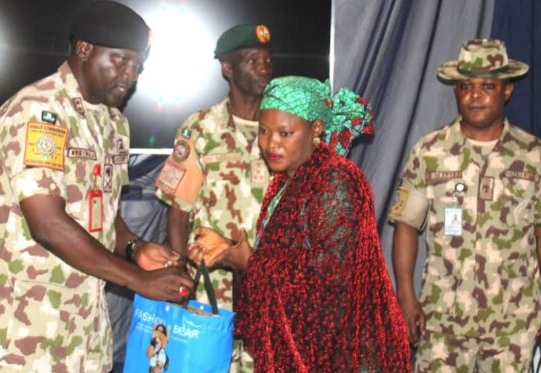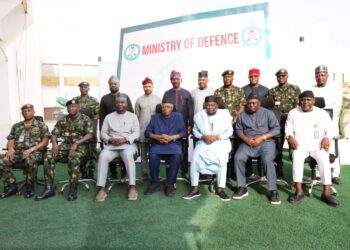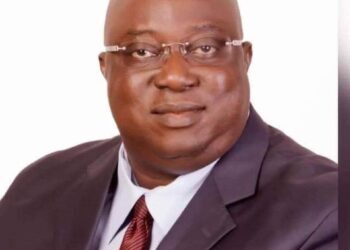The Multinational Joint Task Force (MNJTF) has honoured the bravery and sacrifice of its soldiers who were killed or wounded in action during Operation Lake Sanity II.
Maj.- Gen. Ibrahim Ali, Force Commander of MNJTF, presented token compensation to the families of fallen heroes and wounded soldiers in Mora, Cameroon, and Maiduguri, Nigeria.
Gen. Ali commended the troops’ bravery and sacrifice in the ongoing effort to restore peace and stability in the Lake Chad Basin.
He said: ”their actions remind us of the heavy price paid for freedom,” he said, emphasising that the fallen soldiers’ legacy will continue to guide the fight for peace in the region.
He reiterated MNJTF’s unwavering commitment to upholding the peace and security the soldiers stood for.
The Force Commander extended heartfelt condolences to the bereaved families, acknowledging the pain of their loss while noting that the compensation presented was a token of MNJTF’s respect and gratitude.
“Your loved ones served with honor and distinction, and their contribution to this noble cause will never be forgotten,” Ali stated, encouraging the families to find solace in the soldiers’ sacrifice for regional stability,”said Ali.
Ali recognised the resilience of wounded soldiers, praising their dedication to the mission.
“Your bravery inspires us all,” he remarked, assuring them of MNJTF’s continued support for their recovery.
Also speaking, Brig.-Gen. Mohammed Babayo, Commander Sector III, expressed his deepest condolences, emphasizing that while no compensation could equate to the ultimate sacrifice,
He said that the gesture was intended to assist the families during this difficult time.
The bereaved families, represented by Mrs. Afusat Abubakar, expressed appreciation for the thoughtful gesture.
The event also saw the participation of senior military officials, including Theatre Commander of Operation HADIN KAI Maj.-Gen. Waidi Shaibu, who joined Gen. Ali in presenting compensation tokens to the families.
NAN report that a similar ceremony also took place in Mora, Cameroon which began with a moment of silence led by Sector I Commander Col. Tookap Loti, who described the soldiers as valiant heroes.
The MNJTF, comprising soldiers from the Lake Chad Basin Countries (LBBC) (Cameroon, Chad, Niger, Nigeria, and Benin), has been countering insurgency in the region since 2015.
The force is structured in four national sectors: Sector I (Cameroon) headquartered at Mora; Sector II (Chad) headquartered at Baga-Sola; Sector III (Nigeria) based in Monguno; and Sector IV (Niger), based in the town of Diffa.
NAN reports that in late 2014, the ministers of defence and chiefs of staff of LCBC states re-activated and re-operationalised the MNJTF as a counterterrorism force, with an increased capacity of about 10 000 troops from Nigeria, Chad, Niger and Cameroon.











